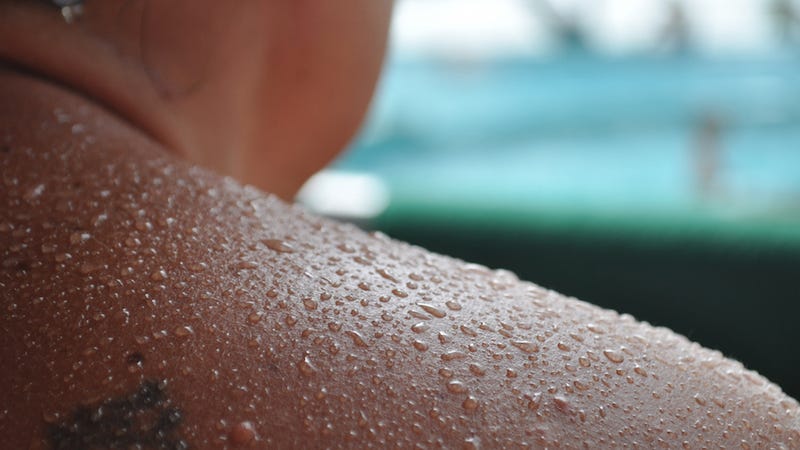[ad_1]

Some of us just sweat more than others, and while it can be the source of much embarrassment and shame (trust me, I’m a sweaty person), it helps to understand the reason behind it. This piece from The Science of Us explains the biology behind why, and what you can do about it if it bothers you.
Barring a case of hyperhidrosis (a condition marked by abnormally heavy sweating,) if you’re one of those people who tends to sweat a bit more than others, you can blame your parents—or at least your environment during the first few years of your life:
Explaining why some people sweat more than others, Rittié said that “[w]e think this is because of the following interesting fact. Everyone is born with virtually the same number of sweat glands, but sweat glands mature during the first 2 years of life. Not all sweat glands become able to produce sweat (it depends on the need during that time). So people who grew up in warm climates tend to have more active sweat glands than people who grew up in a climate-controlled environment or in cold climates. As adults, we keep all our sweat glands but only a portion of them are able to produce sweat. This percentage varies between individuals.”
I asked her if she was aware of any genetic factors contributing to this, and she said no. So that leaves the environment you spend your early years in as a major contributing factor to how sweaty you are later in life.
So that explains why we sweat so much, but not what you can do about it if you have a tendency to sweat profusely with even a little activity. The full piece has suggestions for that too, but here are a few stand-outs:
- Slowly acclimate yourself to warmer temperatures over time. By inching up your thermostat a few degrees at a time, you’ll have to suffer through the discomfort of sweating a good bit at first, but over time, your body will grow accustomed to the now-higher temperatures. If you’re exposed to warmer temperatures often, your body will adapt—this is why 65 degrees feels chilly in the fall, but warm in the spring, the piece explains—by the end of summer, your body is adapted, and you can do the same at home.
- Sip cold water, and ditch the ice packs. Your body’s sweat response is based on internal temperature, not external temperature, so sipping cold water will help keep your core temperature down—which in turn, despite how much activity you get or how hot it is outside, will help you cool off.
The slow adaptation rule also applies to exercise and activity as well. If you feel like you sweat after even a flight of stairs, even though you’re not winded or tired, keep pushing—eventually, maybe by making those stairs part of your daily climb—your body will adapt and you’ll be able to take them without sweating so much.
If You’re Way Too Sweaty, Blame Your Early Childhood | The Science of Us
Photo by kullez.
[ad_2]
Source link





